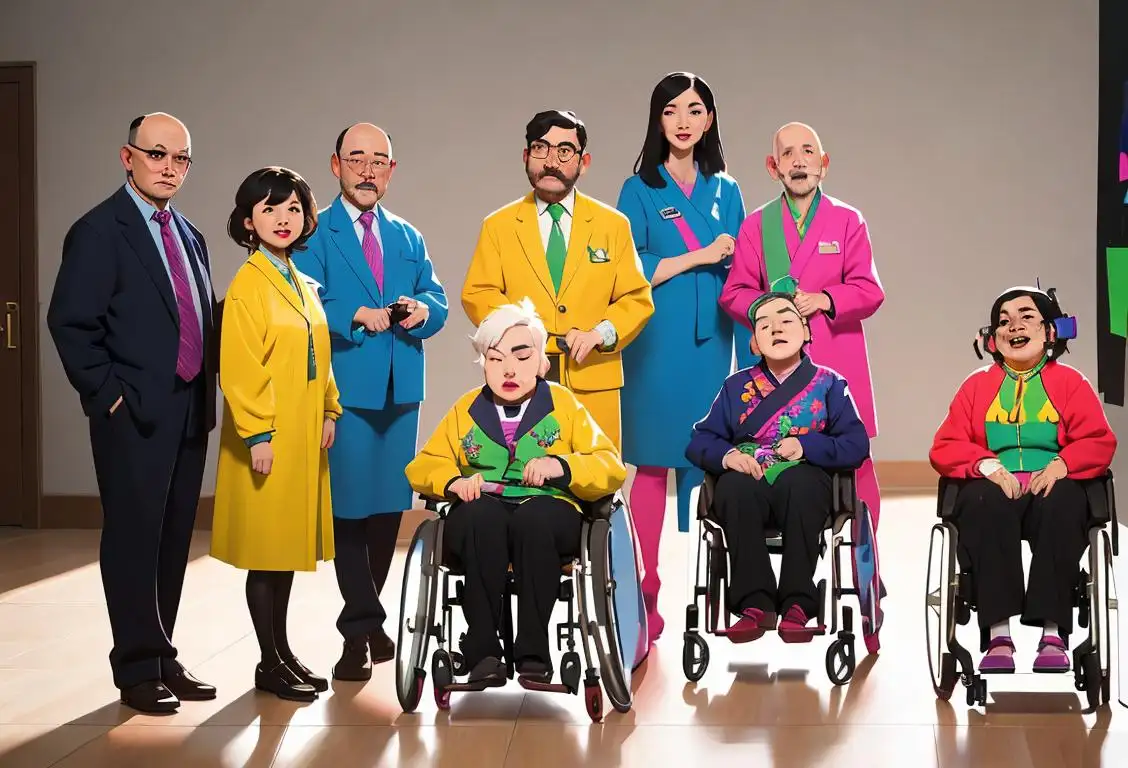National Pronoun Day

Welcome to the wondrous world of National Pronoun Day! This delightful day is a celebration of the words we use to refer to ourselves and others. It's a day dedicated to embracing inclusivity and respecting everyone's individual identities. So grab your grammatical guidebooks and get ready for a pronoun-filled adventure!
When is Pronoun Day?
It's national pronoun day on the 17th October.
The Origins of National Pronoun Day
Like many national days, the exact origin of National Pronoun Day is a bit of a mystery. We couldn't find a specific date or person credited with its creation. However, we can safely assume that it emerged from the growing awareness and importance of gender identity and pronouns.
Embracing Inclusivity and Diverse Identities
One of the primary goals of National Pronoun Day is to foster respect and inclusivity for transgender, non-binary, and gender non-conforming individuals. It serves as a reminder that using correct pronouns is an essential part of acknowledging and validating someone's identity. By engaging in discussions and promoting the use of proper pronouns, we can create a more inclusive society for all.
How to Participate
Participating in National Pronoun Day is as easy as using correct pronouns and respecting others' choices. If you're unsure about someone's pronouns, don't be afraid to politely ask! Remember, it's always better to have a conversation and learn than to make assumptions.
You can also show your support on social media by using the hashtag #NationalPronounDay and sharing educational resources about gender pronouns. Spread the knowledge, my friend!
History behind the term 'Pronoun'
1530
The Early Days
The term 'pronoun' finds its origins in the English language during the 16th century. The word 'pronoun' is derived from the Latin term 'pronomen' which means 'in place of a noun'. The English word 'pronoun' was first recorded in the year 1530 and was used to describe a word that is used instead of a noun to avoid repetition. At this time, pronouns were primarily used to replace the names of people or things in sentences.
1712
The Grammatical Classification
In 1712, the term 'pronoun' became recognized as a grammatical classification. John Harris, an English grammarian, introduced the term 'pronoun' in his book 'Hermes: or a Philosophical Inquiry Concerning Universal Grammar'. Harris categorized pronouns alongside nouns, adjectives, and verbs as part of the parts of speech in English grammar. This cemented the usage and importance of pronouns in language and communication.
1785
The Grammatical Influence
In 1785, Robert Lowth, an English bishop and grammarian published his influential book 'A Short Introduction to English Grammar'. Lowth's book outlined and defined the grammatical rules of the English language, including the role and usage of pronouns. His rules and classifications of pronouns greatly impacted the way English was taught and written, influencing generations of students and writers.
1850s
Pronouns in Gendered Language
During the mid-19th century, gendered language became prominent, especially in relation to pronouns. In many languages, including English, gendered pronouns such as 'he' and 'she' were used to indicate the gender of the person being referred to. This reflected and reinforced societal gender norms and expectations. However, in recent years, there has been a growing recognition and inclusion of non-binary and gender-neutral pronouns to accommodate the diversity of gender identities.
2019
Inclusive Language
In contemporary society, the use of inclusive language has gained significant importance. Pronouns have become a focal point for creating inclusive spaces and recognizing the gender identities of individuals. The emergence and adoption of gender-neutral pronouns, such as 'they/them', 'ze/zir', and 'xe/xem', exemplify the ongoing evolution of language and the recognition of diverse gender identities. Being respectful of preferred pronouns has become an essential aspect of allyship and promoting inclusivity.
Did you know?
Did you know that the singular 'they' has been used as a gender-neutral pronoun for centuries? It's a handy way to refer to someone without assuming their gender!Tagged
awareness inclusivityFirst identified
16th October 2019Most mentioned on
17th October 2019Total mentions
593Other days
Sign Language Day
Coming Day
Pronouns Day
Level Job Portal For Pwds Launched To Mark Nhfdc Foundation Day
Disabilities Day
Leggings And Yoga Pants Day
Pronoun Day
Memorial Day
Heroes Day
Former Prisoner Of War Recognition Day








